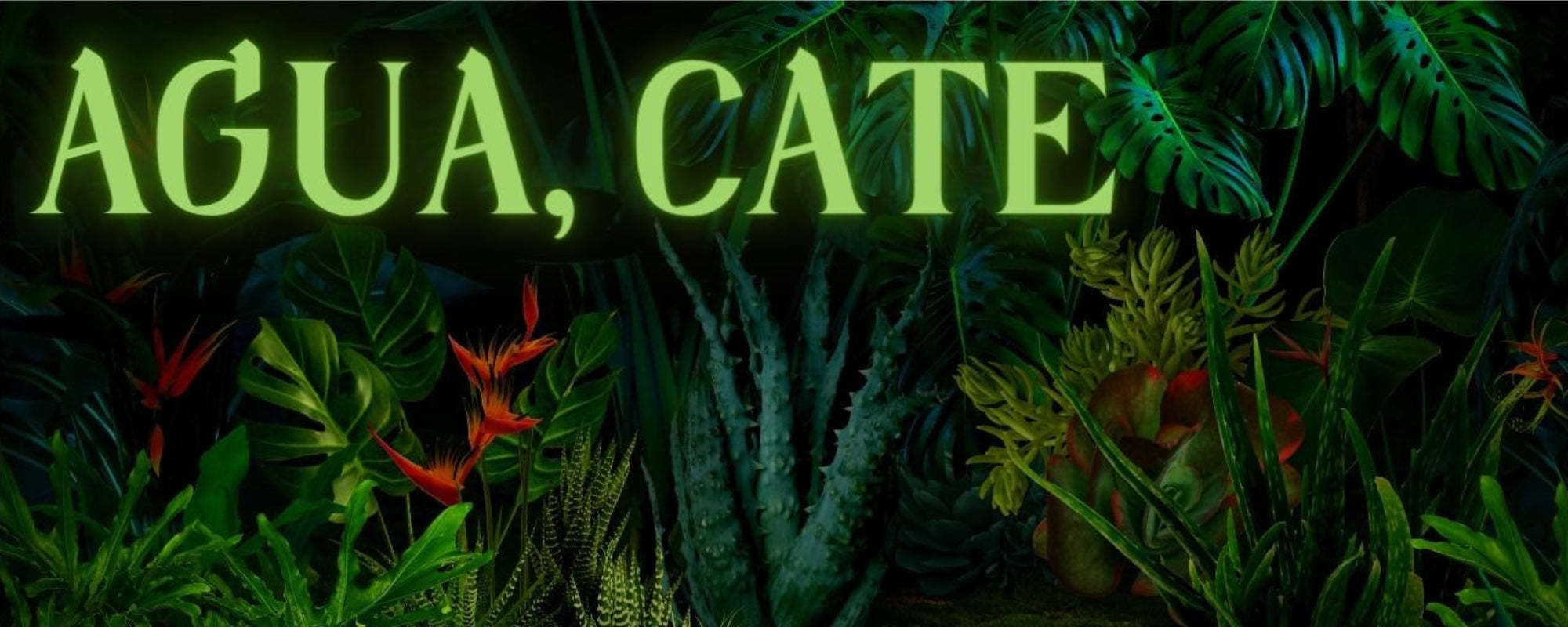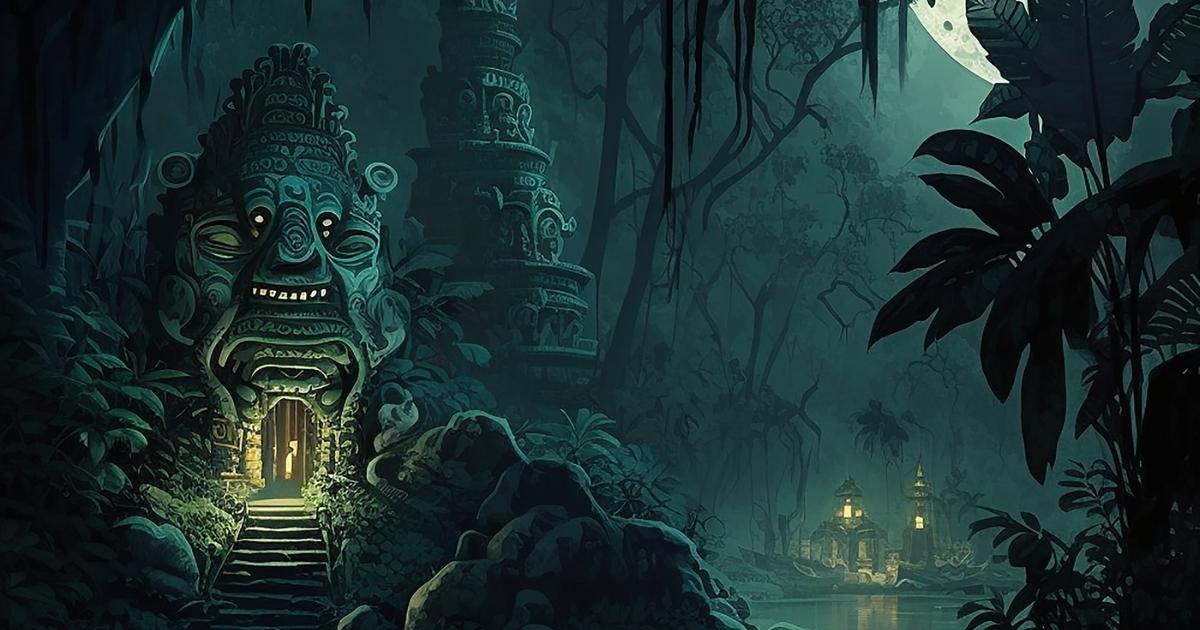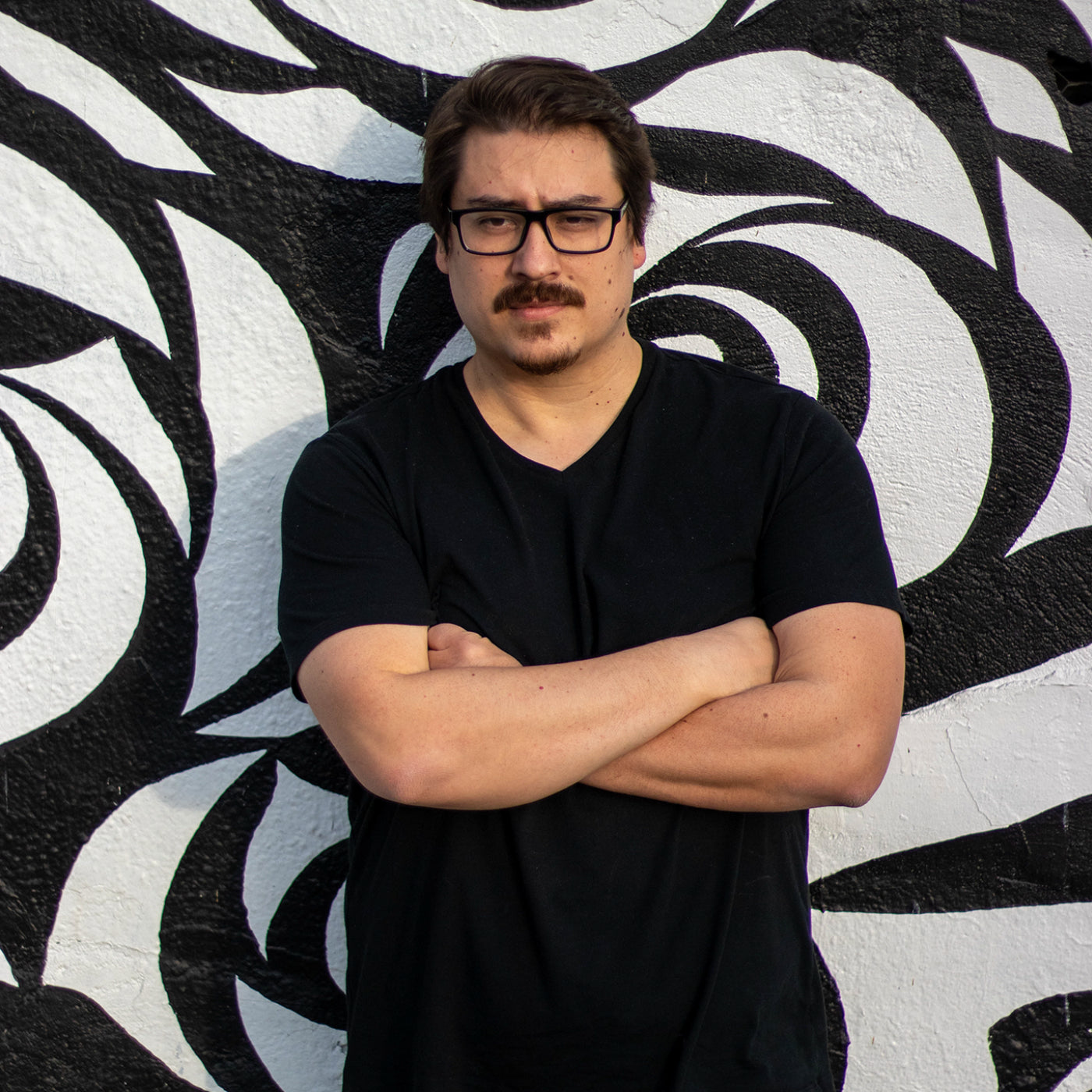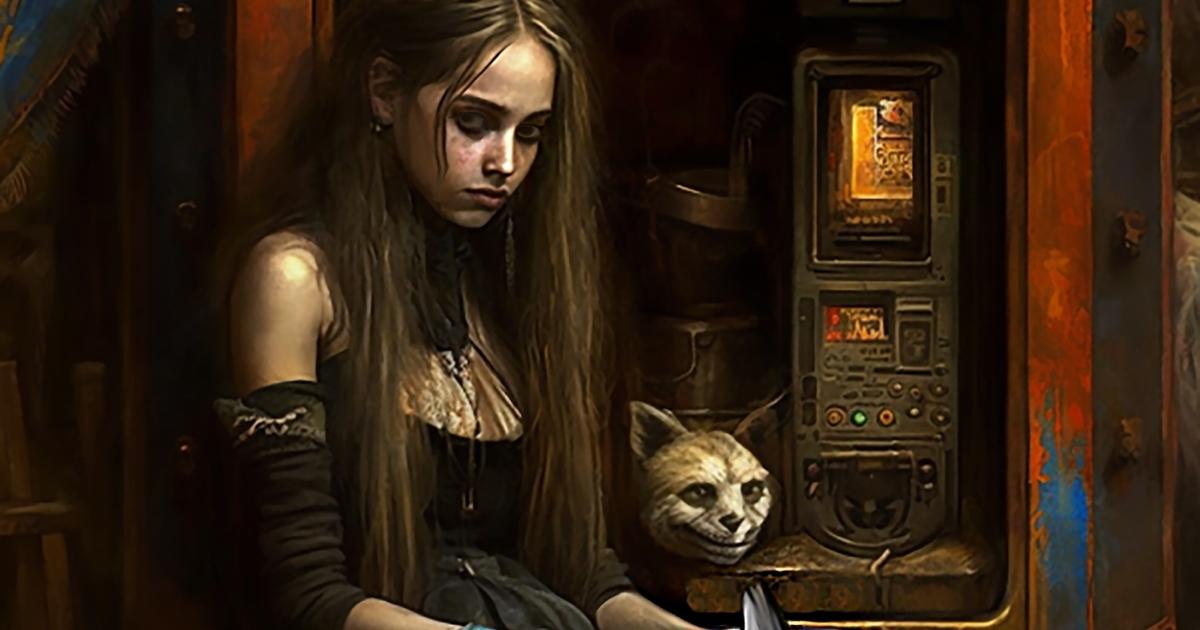

Agua, Cate
By A. P. Thayer
SUNRISE
Go on, now,” my mother croaks. “The Mechanic is expecting these before sundown.” Her voice is worse now, and she takes a deep breath after speaking. She winces with the exertion of expanding her chest.
The boat beneath me shifts and bobs at the river’s edge, trying to pull away from our little dock, trying to be swept away by the current, but my fingers are tight around the wooden post pile. It’s rough beneath my hand, cool from a long night. Fog glitters over the green coils of the river, a curtain of stars separating me from the void beyond. I don’t want to go into the fog. I don’t want to go to the Mechanic. I look up at my mother on the dock.
I don’t want her to die.
Downriver, where the current is trying to pull the boat, a yawning cave of branches and darkness awaits. And beyond—
“Stop wasting time,” she says gently and pats my hand. I go to pat hers back and the post pile slips from my grip. I stumble, I reach, but the river has dragged me and my cargo away, and I almost tip over into the water. My mother smiles sweetly at me from the dock, already growing smaller. She looks like she is crying.
“Remember, do not leave the boat,” she yells, her voice cracking with the effort. “Do not answer any of their questions.”
Before I can respond, the fog has swallowed her up and the riverbank is sliding past, and all I can do is grasp the side of the boat with one hand and steady the sack of giant avocados at my feet with the other.
The river knows where it’s taking me, but it’s only now that I wonder how I will return home. There must be a way, though. My mother has always returned.
Even if every time she returned, she was a little smaller.
A little sicker.
THE JUNGLE
The river was fast at first, like it knew it needed to pull me away quickly and not drag things out. I’m the one who drags. Now, though, the river has slowed, its current is calm. The surface is almost glass-like as the boat slices downstream.
Giant trees, thick enough that we could fit our home inside one of the trunks, crowd the riverbank, making the river’s edge a labyrinth of gnarled roots and hanging vines. Uninviting. Foreboding. Do they gaze down on me and laugh at my fear of the journey? Do they click their tongues and chatter in their branches about how old I am and why has it taken this long for me to leave home? Or am I just imagining my aunt and cousins, their faces in the bark of the crowding trees, mimicking the judgment I feel any time they come over for free avocados?
The canopy overhead is dense. I don’t know how long I have been traveling. The risen sun—it must be risen by now, no?—has not changed the gloom beneath their boughs.
No, there is no light from the sun here. What light there is comes from beneath. The riverbed glows verdant, illuminating the canopy above in bright green ripples, distorting the lush moss-covered vines and twisting the shadows within the branches, like the tentacles of some great beast, slumbering for eons around this river.
Fog still gathers in the nooks of the tree roots, pockets of gray that shimmer with the green coming from below. Green is the color of life, no? But it is also the color of poison. Of greed.
Of avocados, too.
I tell myself there is nothing to fear, but the words are hollow. There is no hard pit within me, only soft flesh beneath brown skin. I squeeze my arms. For a moment, I expect my fingertips to press into overripe mush, but it is only a fantasy. I am not an avocado.
RUINS
Hours, days, weeks later, the slumbering tentacles give way to blocks of stone. I say give way because the jungle must have allowed such things to be placed among its trees in the first place. It was a willful act for the trees to part and allow this intrusion. Nothing passes beneath their thick limbs without their say so.
At least, that’s what I imagine. A boat could not support these massive blocks. No, people carried these stones in. Worshipers of the ancient jungle, perhaps. And the trees let them.
Perhaps the jungle knew what would become of the stones. The jungle is forever; those who brought the stones were not. The pictures they carved on the sides of the rocks are faded by time, by rain. The stone is colored green from flora, choked by vines and lichen, sprouted through by fungi. The gnarled trees crowd the stones, like they have gathered around art pieces, glad for the bits of humanity they allowed in and now keep as pets. Stones last longer than prayers, after all.
I crouch down lower in the boat. Will they make me a pet, too? They have let my mother through before, allowed her to be brought back. Will they do the same for me?
I slide past a wide, flat surface of stone that juts out into the river. An ancient dock, perhaps. The river has carved away the bottom part of the stone, smoothing it with its current over hundreds of years. No. Centuries feels wrong, but I don’t know how long it would take for the river to wash away stone like that. What do I know of the world?
There is a gravitational pull in my gut as I pass by, the weight of time hooking into my belly, eager to have me join it. Or, at least, to understand.
Not centuries. Millennia.
“Do you like what we have done with these stones?” a voice reverberates through the canopy all around. A voice heavy with the weight and density of a black hole, distorting reality all around it.
I hunch down even lower, lying flat on the bottom of the boat, hugging the sack of avocados tightly. Or are they hugging me? Do not answer their questions, my mother said, and I try to always listen to my mother.
The jungle laughs around me as I slide past. It unfurls its limbs, shifting itself around the river and its stone mascots. I turn my head so that I cannot see the tunnel of branches and vines above, sparkling with the green ripples of the glowing riverbank beneath, but even with my eyes closed and my face turned toward the sanded wood bottom of the boat, I can imagine the shifting faces in the trees above. I can see their amorphous mouths laughing and whispering and judging.
“Give us an answer, little one. Give us a truth,” says the one voice now many—now multiplied and surrounding me. But I give them nothing.
The air grows thicker. The day grows hotter. Even shielded from the sun, the temperature rises and my clothes stick to me, and the humidity coats my insides as much as my outsides. The voices fade. Their questions remain unanswered.
The effort of remaining silent is too much, and sleep finally takes me.
SCALES
The boat rocks from an impact and I jolt awake. I was dreaming of pink flowers blooming at twilight, and orange and yellow petals raining from an orchard of unknown fruit. Not our orchard, ours is small and gray, somber because of the mass graves where all of our men are buried.
One of my uncles is in that deep pile of bodies, or so my aunts say. They say he was a warrior. They say he fought for our people. My mother told me he used to beat her sister and she’s glad he’s dead. She says his side didn’t even win. When I ask her whose side we’re on, she says we are on our own side.
The boat rocks once more, and I pop my head up to look above the walls. The jungle still slides past, but the riverbank is further away and there is bright blue sky above. The green emanation from the bottom of the river is muted now, defenseless in the face of a brilliant cerulean expanse above and the golden orb beating down on everything.
There is nothing to see, though. No rock, no rapids, or roots or debris. Perhaps an errant current?
I straighten in the boat and stretch. I am soaked through with sweat, my mouth is dry, but I am thankful the sun has chased away the ancient jungle. The rainforest now stretches more naturally all around me. Thick roots choke the riverbanks, but there is no canopy overhead to block out the sun.
I dip my hands into the green water. It’s cool, and I splash it on my face and pour it over my hair. The drops sparkle before they darken the floor of the boat and the sack of avocados. I cup my palm, dip it into the water, and sip from the river, my head low and near the surface.
Silver shimmers beneath as a shadow passes under the boat, and I nearly fall backward. The beast surfaces, exposing a part of its scaled back to the sun as it swims alongside me. A beast many times longer than the skiff, serpentine and metallic, with diaphanous fins propelling it along lazily in the water. It spins and dives, disappearing into the murky green, and I can feel it crossing beneath the boat once more. Were it to surface now, the boat would be beached upon its back and would tumble down the mountain of its spine.
I grab the sack and the gunwale, and I hope and I pray. My mother prays every night, but I don’t understand the words she uses. She prays in a language that sounds like I should understand it, but the meaning escapes me, like I’m trying to grasp at smoke. She told me once that it’s the language of our people from long ago. Maybe that’s why her prayers are never answered. If they were, she would have stopped praying, wouldn’t she?
But right now, I pray, my fingers tight around the burlap sack of avocados.
“Please, Mother, let me pass. Let the river take me further on.”
The surface of the water froths as the beast surfaces once more. The silver in its scales glitters in the sun. I can’t help but think that the sun drove away the jungle and has now summoned this beast, and I resent it for that.
“Do not be resentful, little one.”
The voice startles me, not because a beast speaking should surprise me, but because the voice is warm and soft. The rich tone inspires confidence, even as the beast coils around the boat in a way that could crush me to kindling.
My mother said not to answer any questions, but the beast asked none.
“Please, let me pass,” I whisper, not speaking directly to it, not missing the similarity my whisper has to a prayer. Perhaps this is a river god. Perhaps this river god will answer my prayer.
“You are not the one who usually comes,” it says after a moment.
Maybe if I shut my eyes to this beast, like I did to the jungle, I will wake up and be at the Mechanic’s. I hunch down once more, wrap my arms and legs around the sack in the middle of the floor, and shut my eyes.
The rumble of laughter vibrates the wood I lay on.
“Do not be afraid, little one. I smell that other one on you. She told me you would come some day. Like her, you will pass through safely, if you follow her directions. Do you remember them?”
No answers, no answers.
The rumble of laughter grows stronger.
“Ah, good. She has taught you well. Hold onto that when you get to the end of your journey.”
Something scrapes the bottom of the boat, and I jolt as the craft is pushed forward. “The day grows long, and you are behind schedule. I cannot watch over you in their lands. May you pass through them quickly. Remember what she taught you.”
I poke my head up over the edge of the boat and look back. The scaled beast coils and uncoils in the water behind me, holding its forward movement with powerful strokes of its veil-like rainbow fins.
“Remember,” it calls, “no answers!”
PILLARS OF HEAVEN
When I was younger, one of my aunts would come over and watch me while my mother went on her avocado deliveries. My aunt would read from a book that she claimed the laws of man and all that is good in this universe came from. It was written in a different language, a new one, and my aunt had to translate what it said to me. She hoped I would learn the language.
She read about giant wheels of eyes and wings, whose voices would make men tremble. She read about fathers sacrificing sons, mothers sacrificing daughters, and of floods, fire, and violence.
I didn’t like what she read to me, didn’t like to hear about her angels and her god. There was no love in them. For weeks I had nightmares, until my mother returned early and found out what my aunt was doing. They had a big fight. I couldn’t understand what they were saying—they spoke in the language of my aunt’s book—but my aunt never came over to watch me after that. The nightmares faded eventually, too, though every once in a while, I still dream of a titanic wheel of eyes and wings, rimmed in fire, hovering in the sky above me, flaying my flesh from my bones with the heat of its voice.
I always wake up sweating.
I am sweating from that same terror now in the late morning sun. Has it been only a few hours since the sun rose, or have I lost days on this journey? How long did my mother stay away when she delivered our fruit? How long did my aunt read from that book before my mother returned?
The river is muted and murky now, devoid of all light. Only a dark, lazy smear of green curls around pillars of stone. Towering columns of volcanic rock, wrinkled with crevasses, spotted with thorny growth, tear at a fractured sky of black lightning and dirty clouds. Atop the columns are the horrors straight from my dreams.
I can’t look directly at them. It’s like looking at the sun. They loom over the river, loom over me, as I float past. I don’t need to be told to keep my eyes down. I can hear my aunt’s voice, telling me how the humans these angels spoke to averted their eyes and covered their ears and begged and groveled. I throw myself face down in the bottom of the boat, my hands over my head. Let me pass through this land of horrors, please.
“Another crosses our realm.”
Like in the stories my aunt read, the voice is booming. It vibrates my nose hairs and echoes in my ribcage. Heat blossoms above me, hotter than the distant sun, our brightest star. The voice speaks in that language my aunt’s book was written in, the one she tried to teach me, but I can understand it now. Somehow.
“One like the other.” A second voice, equally loud, equally terrifying—only there is an airy quality to this one, something more ethereal, a howling gale blowing through the jungle in the wet season.
“Alike, and yet not,” says a third. This one crackles and pops in its low timbre, the roaring of a field set alight to burn away the old crops and return nutrients to the soil. The heat coming from this third being is the most intense.
“What do you offer us?” asks a fourth. This one is the thunder of waterfalls plunging hundreds of meters down, churning, frothing, screaming. It sounds the closest, and for some reason, I am most afraid of this one.
Even with my head down, my eyelids pressed shut, and my face against the rough sack of the giant avocados, I can sense this last voice leaning over the edge of its karst to peer down at me in my minuscule craft. I float within the current of the river, close enough for the fourth being to pluck me and the boat from the water.
The silence stretches as they await my answer, but I have instructions—from my mother, from the scaled river god. I must not answer.
The air temperature rises. The sweat beading down the back of my neck, the drops of it dripping down my face into the sack, begin to evaporate.
“What,” says the first voice.
“Is,” says the second.
“Your,” continues the third.
“Offer?” finishes the last, and the air ripples with their combined sentence, and the strands of cloth that make up my shirt combust and crumble to ash. My skin boils and cracks. My blood erupts from me in a crimson steam.
But I do not speak.
There is no right answer, after all. I have brought nothing. I cannot lie to them. Even had I the will to answer.
So, I ignore them. I cannot ignore my ravaged flesh and cracking bones, but I can ignore their booming voices. I can ignore their flapping wings and screaming eyes. I kneel over the sack of avocados, drowning in pain, and I think of my mother. I think of her leaving every morning just as the eastern sky is beginning to lighten. I think of her returning to the farm with the last rays of light disappearing behind her, shrunken by her daily journey through these horrors. I think of her using the satchel of salt and rice she brought back with her to cook me a meal, her fingers frail from what she endured.
And I think about the wrinkles in her face, how deep they’ve become. The cloudy white that is creeping over her eyes. The black veins covering her gnarled hands.
I love you, Mother.
The pain continues, but everything continues. There are no beginnings and ends, only the same cycle told in different ways.
I take deep breaths with my eyes closed, my eyelids melted together from the heat of these giants, until their voices fade behind me and the world turns cool and even the pain is an appreciated companion.
THE MECHANIC
The river continues on to a hole in the earth. It cascades over the rim of the cenote into infinite depths of space. Beside it is the Mechanic’s bar. El Agujero al Fin del Mundo.
Seven mechanic stalls are filled with uneven and mismatched tables and chairs. Some are actual furniture, some are pieces of old starships taken from the junkyard next door. The wall where all the tools used to hang is covered in the drink prices, chalk on a dirty surface, barely visible. The old rocket pad has been converted into a dance floor.
The boat knows where it’s going. The pull of the cenote is enough to bring it to the pier where waiting hands guide us in. I don’t move to help. I have my arms wrapped around the sack, the rough fibers of the stitching tickling my slightly sun-burned skin. Someone holds out a bottle of water to me, but I stop myself from nodding. The offer is a question after all, no? Acceptance would be an answer. I won’t fail now when I’ve come so far.
“I recognize the skiff,” says a raspy voice, “but not its rider.” A woman old enough to be my mother’s grandmother, leaning on a bamboo cane, waits on the dock.
There is no question. I feel safe in speaking. “I am looking for the Mechanic.”
The woman smiles, exposing a mouth full of gums, devoid of teeth. She pulls a chain from around her neck. The end is heavy with the weight of a rusted wrench. I blink. Was she always wearing the blue overalls?
“How was your journey?” she asks.
I take a moment to decide before lifting the sack up to her. “These are for you.” It is not an answer.
Her eyes, deep black orbs devoid of life and feeling, flick back and forth between the burlap in my hand and my face. Eventually, calloused fingers reach out to take the sack from me.
“I will miss these,” she says, her voice the whisper of steel on stone, “but nothing lasts.”
“What do you mean?”
The Mechanic smiles. She does not answer me. Instead, she holds out a roll of paper money held together by a rubber band.
“This seems like too much,” I say, not really knowing what else to say, not really knowing how much too much would be. How much are giant avocados worth, after all? How much has my mother been charging?
She laughs. “If anything, it is too little, my son. Two decades of avocado deliveries, but your mother never raised the price.” The Mechanic gestures behind her to the bar. “I’ve flourished here, thanks to her, but we all knew this day would come.”
There is a heavy feeling in the air that tells me I’m missing something. Some piece of a puzzle I hadn’t known I was putting together.
The Mechanic reads the question in my face, but knows better than to answer. Instead, she slips the roll of bills into my shirt pocket and points toward the cenote. At the churning edge of the water, metal flashes in the last light of the day as an old starship is spat out onto the shore. A crowd of dozens scramble to disassemble it and drag the metal guts to the junkyard. On the other side of the cenote, the river continues. It is much smaller, barely more than a stream. A path beyond this one.
“What is this place?” I ask.
The Mechanic smiles and shakes her head and sits me back in the boat. “Time to decide.”
The wood is rough on my legs, but familiar. The water splashes and ripples as it tries to pull the boat back into the river. My mother told me not to leave the boat. I hadn’t known there was a puzzle, but the pieces were all there. And now, before me, the choice. But is there really a choice? I will never see my mother again. This much I know. The cenote will take me back to a gray orchard and to my aunts and cousins, but not to my mother.
The stream beyond the cenote calls to me. Everything has been preparation.
I turn back to the Mechanic. She nods. I nod back. I push the boat away from the dock. Away from the cenote. Toward that distant stream that disappears into the unknown, away from my home and my mother and the life she sacrificed so much for. The boat picks up speed. The thunder of falling water becomes a dull roar, then a whisper. I am at the end of the world, but only the end of this world. Every end is a beginning, and I smile as this stream brings me to the next.
“Is that you?” asks a familiar voice. The winged river beast undulates beneath me, and I hang my arm over the side of the boat, my fingers trailing in the clear water.
“It is,” I say, answering its question.
Copyright © 2023 A. P. Thayer
The Author

A. P. Thayer


